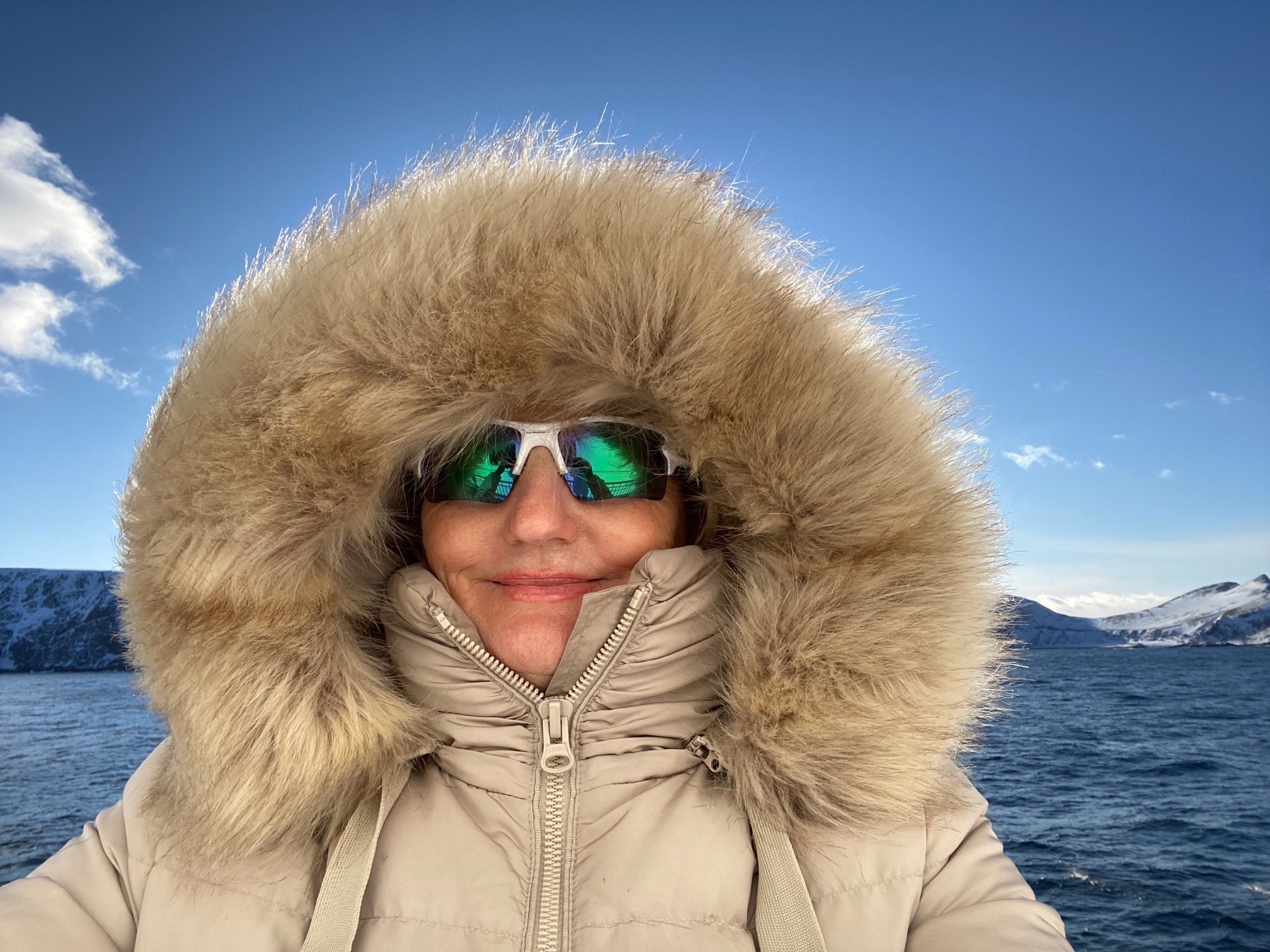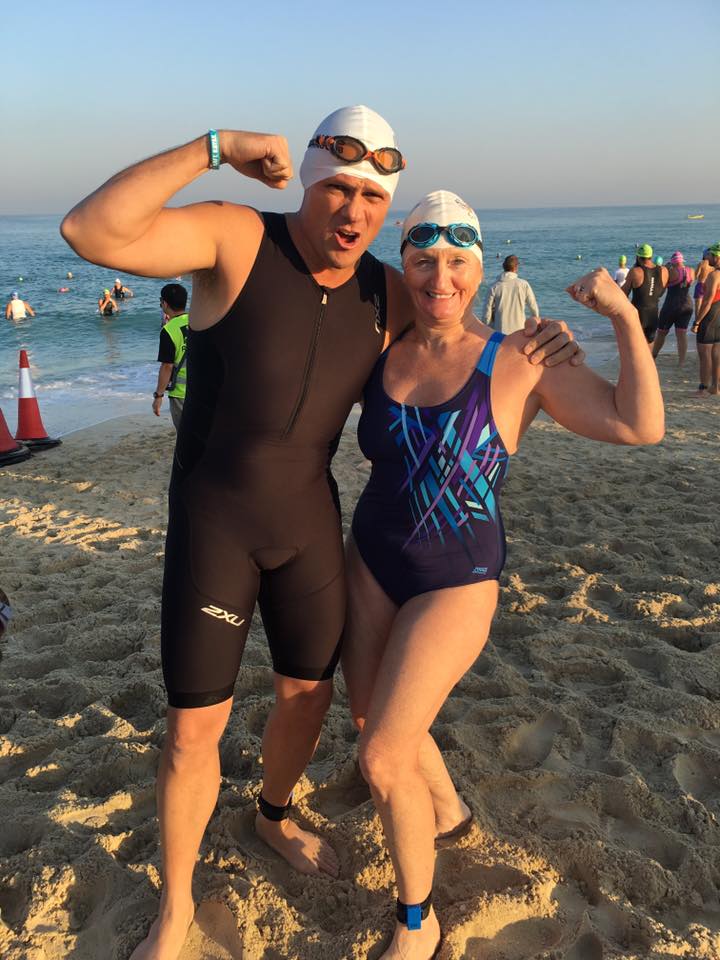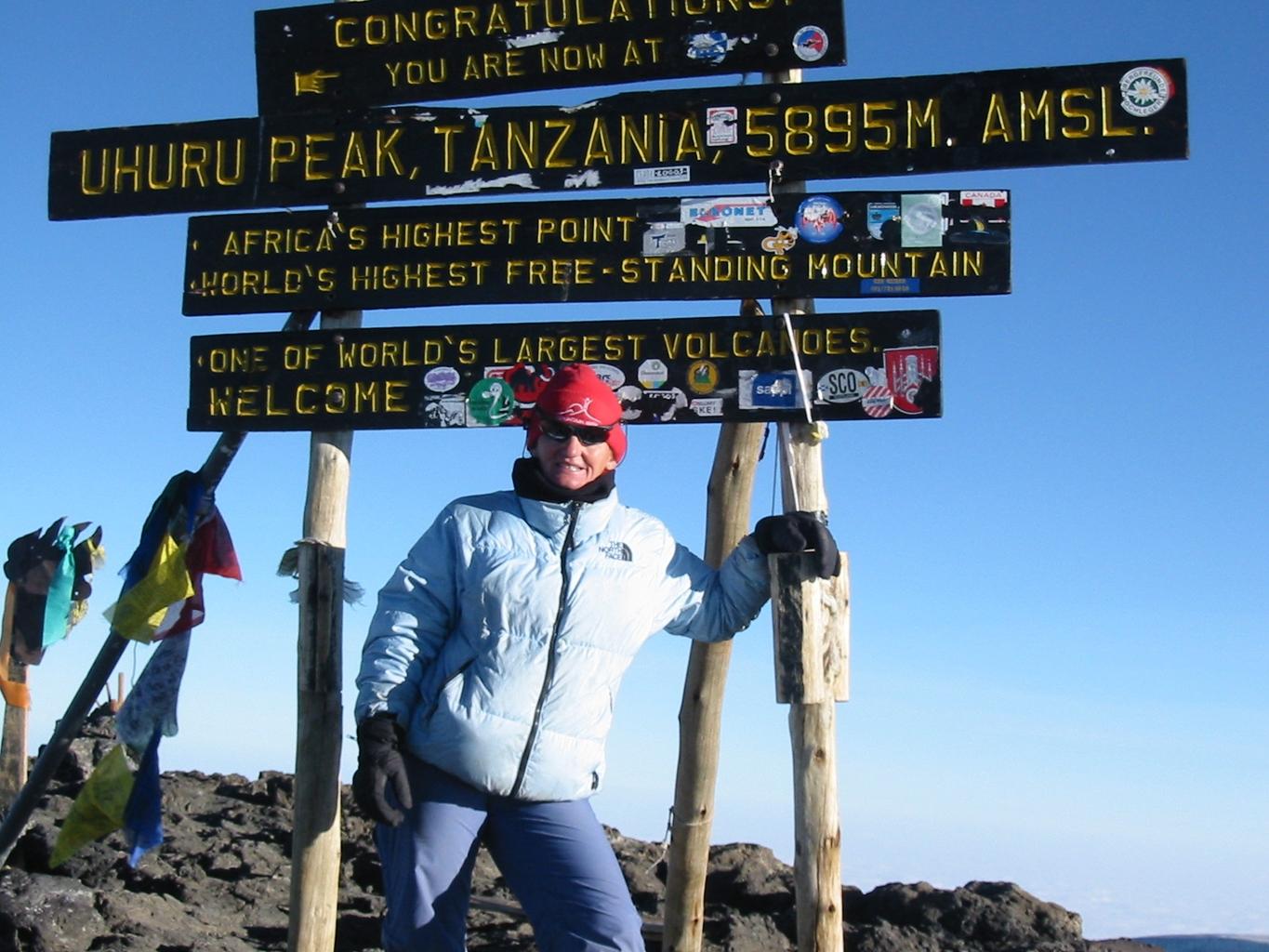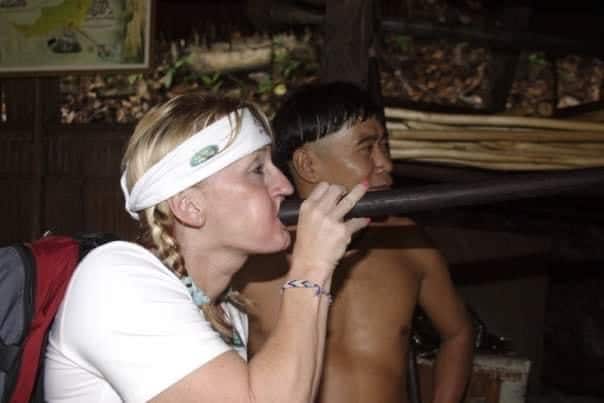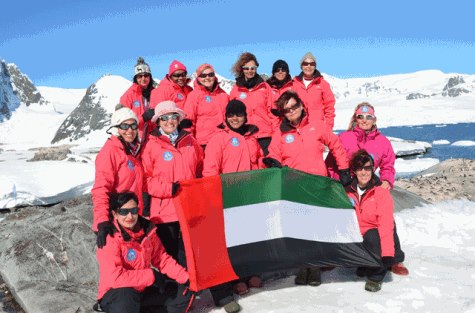Julie Lewis is a resilience guide, organizing “re-wilding” adventures bringing people outside their domestic comfort zones and helping to build resilience through enlarging the scope of their experiences. With the current turbulence we are all being buffeted by, having a strong element of resilience is a handy trait to have. Julie is an expert on the topic, with considerable personal experience — from the early loss of her husband to her endurance-pushing endeavors in the Arctic and the Himalayas.
Why is resilience important today?
Nature is dynamic and life is change. Nature is a classic example of being resilient, of knowing and trusting that change is inevitable and weathering that change. Our lives have changed so much over the last few years, in particular over the last few months, as a result of the current health crisis. We are all in the same storm, however people are experiencing it very differently depending on their personal circumstances and, for some, their geographical location. Change brings both gifts and challenges — the key to navigating this is by being resilient, resourceful, and making conscious choices as to how we respond and adapt. When everything seems to be up in the air and “out of control” it is essential that we focus on what we can control: our thoughts, feelings, actions, and behaviors. It’s a time to triple our self-care, limit our time on negative news media and focus on what we can do as individuals, teams, communities to weather this storm and ride the waves of change like a champion surfer. It’s really important to reach out and connect with family, friends, clients and our community for support and to give support. Social connections and integration are two of the most important factors when it comes to longevity, resilience and well-being.
Resilience Is a Skill You Can Learn
What does resilience mean to you?
It means the ability to bounce forward higher and stronger, stay calm and optimistic, respond and adapt swiftly to change, to be open-minded, to focus on solutions, be flexible within a framework, to be able to manage stress and anxiety … and know when to rest. The good news about resilience is that it’s a skill you can learn, build and broaden by actively seeking new experiences and new connections that take you out of your comfort zone and into the resilience-building growth zone.
AGEIST Resilience Reading as recommended by Cathy Chong:
Books:
Man’s Search For Meaning – Victor Frankl
Leadership in Turbulent Times – Doris Kearns Goodwin
The Resilience Factor – Karen Reivich
Resilience: The Science of Mastering Life’s Greatest Challenges — Dr. Steven Southwick & Dr. Dennis Charney
Unbroken: A World War II Story of Survival, Resilience, and Redemption — Laura Hillenbrand
Option B – Sheryl Sandberg
ARTICLES:
From surviving to thriving: Reimagining the post-COVID-19 return
How Resilience Works
10 Traits of Emotionally Resilient People
Jump-starting resilient and reimagined operations
Preparing for and managing through a downturn
The Quest for Resilience
Building resilient operations
R&D Investment under Financing Constraints
Pillars of Resilience
What would you say are the pillars of resilience?
There are many types of resilience – physical, mental, emotional, psychological, biological, financial, social and spiritual. The key to all of them is self-awareness and understanding – know thyself, choose thyself and give thyself. A great self-compassion question to ask is: What do I need right now? Listen for the answer and gift it to yourself; ask the same of your family, friends, clients as a means to connect, collaborate, and create a strong supportive network.
In terms of pillars/elements of resilience:
- Optimism, accountability
- Solution-focused
- Action-orientated
- Flexible
- Open-minded
- Able to manage stress
“Go out and gather lots of unusual experiences”
How can people increase their resilience?
Go out and gather lots of unusual experiences. The more experiences you have the more resilient you become; the more resilient you become the easier it is to manage stress, anxiety and change. Try different foods, learn new skills, connect with different cultures, choose an accountability partner to keep you on track with your big, hairy goals, get lost and find new ways to do things, take a trip, read books on resilience, take cold showers, express all your emotions, think, eat, move and sleep like a champion, be smart with your money, have a diverse circle of friends, laugh, sing, dance, deal with conflict, take more risks, spend time in nature.
VIA Me Character Strengths Test
What is the difference between strength and resilience?
When I work with clients on resilience we take into account their character strengths. A strength is a positive personality trait that helps you navigate change, be happier and healthier, build solid relationships and flourish regardless of what is happening around you. Simply knowing and applying your strengths makes it easy to build, boost, and broaden your resilience. The VIA Me Character strengths test is a great self-awareness tool covering 24 character strengths and 6 virtues. The strengths that show up as the first five in your strengths profile are known as your Signature strengths; these are your most dominant strengths and the most natural to you. Here’s a link readers can use to take the free test and have their own personal profile sent to them: http://julielewismountainhigh.pro.viasurvey.org
Re-Wiring Ourselves for Calm
How does remaining calm increase resilience?
When we are stressed or in stressful situations our fight, flight or freeze response kicks in and causes havoc with our cortisol levels which in turn impacts our immune system. Good stress keeps us motivated, energized and out of danger. Bad stress and distress sends the heart racing and puts pressure on nearly every single system in our body. Chronic stress (continued stress over extended periods of time) results in anything from the common cold to cancer. The ability to stay calm and grounded is an essential skill. We can re-wire ourselves for calm by practicing grounding techniques, heart-awareness breathing, mindfulness, silent energy practices, asking smart questions, setting healthy boundaries and asking for help. Knowing your stressors and your stress symptoms allows you to then adapt a selection of positive coping skills and relaxation techniques that elicit a calm state. One of my favorites is taking three deep breaths which sends the message to the brain “I am safe.” Another one is grounding through the senses – to take 3 deep breaths then focus on what you can see, hear, and smell to literally “come to your senses.”
Climbing Cho Oyu
Why do you learn by climbing 7000m on Cho Oyu?
Reaching a personal best of 7000m on Cho Oyu back in 2012 gave me a huge sense of achievement and also a reminder that mother nature and the mountain gods always have the last say. We were unable to reach the summit due to bad weather, however it’s the journey of who you become as a result of even starting to climb the mountain! Trekking and climbing 6-10 hours per day, adjusting to the altitude, carrying your own gear, sleeping in a tent, only having access to essentials made me realize just how resilient I was and how, with each passing day, I was building my resilience to whole new levels! I realized just how little we needed and how being surrounded by nature, fellow climbers and guides brings me such joy. Which is why I will spend the rest of my days immersed in nature as much as possible.
Mountain High
Why did you start Mountain High?
I climbed my first mountain when I was 40 back in 2002. At the summit of the mountain I had an ah ha moment! I was on a mountain, on a natural high, and came up with the name Mountain High — an organization to offer unique experiences to explore and discover the great outdoors, connect with new cultures, stretch one’s physical, mental and emotional capacity and make a difference in the process. Prior to this climb I had spent 18 years in the health and fitness industry (my degree is in Sports Science). I had a massive change in my personal circumstances — I was widowed at the age of 36 — which led me to think about how I wanted to create the next chapter of my life. An educational trip to Malaysia in 2001 gave me the opportunity to come face to face with Mount Kota Kinabalu — the mountain had my name all over it. I followed the call to adventure! After my first summit there was no going back to traditional sports; all I could think about was the next mountain.
In 2003 I took a team of women to Everest base camp in Nepal. After returning from this trip I finally had the courage to leave the security of my full-time job and started Mountain High in Dubai on the 1st November 2003!
Is it just for women?
When I first started Mountain High in 2003 I focused purely on women-only trips as there was a huge gap in the market for such trips. I was the first woman in the UAE to offer adventure trips for women. From around 2006 I started offering two trips each year open to men and women. Once the current health crisis is over I will continue to run women-only and mixed trips; I enjoy the diversity they bring.
“Over the last 18 years I have visited more than 20 countries”
What are some of the other places you have been to and what did you learn?
Over the last 18 years I have visited more than 20 countries to include the Arctic and Antarctica, Nepal, Tibet, Bhutan, South America, Morocco, Africa, India to name a few. The trips have been a mix of mountain climbing, treks, boat races, multi-activity challenges, desert crossings and polar challenges (dog sledding) and expedition cruises. I learn something new every trip, even if it’s a return visit. I love learning about the people, the terrain, local traditions, food, wildlife, nature, beliefs and culture. It’s like going to school for a year in just one week — a total sensory overload! I have learnt that I love traveling, meeting new people; have an insatiable and lifelong love of nature and sharing this passion with as many people as possible.
“Giving yourself the gift of shared new experiences expands the mind and body and creates lifelong memories”
When you take a group, what are they learning?
What I love about taking groups on trips, running retreats, workshops or simply speaking to audiences is the reciprocal energy, collective wisdom and shared insights that naturally spring from such interactions. You learn a lot about yourself, others, life and nature in addition to learning new skills, new ways of being, thinking and living. Some of the programs I run have specific themes (resilience, well-being, strengths-based leadership) and they are a combination of workshops, physical activities, meditation, discussion groups and time for reflection. Giving yourself the gift of shared new experiences expands the mind and body and creates lifelong memories. I much prefer experiences over stuff any day. I have learnt so much from my clients, they learn from me and we learn through our interaction with nature, our guides and fellow travelers.
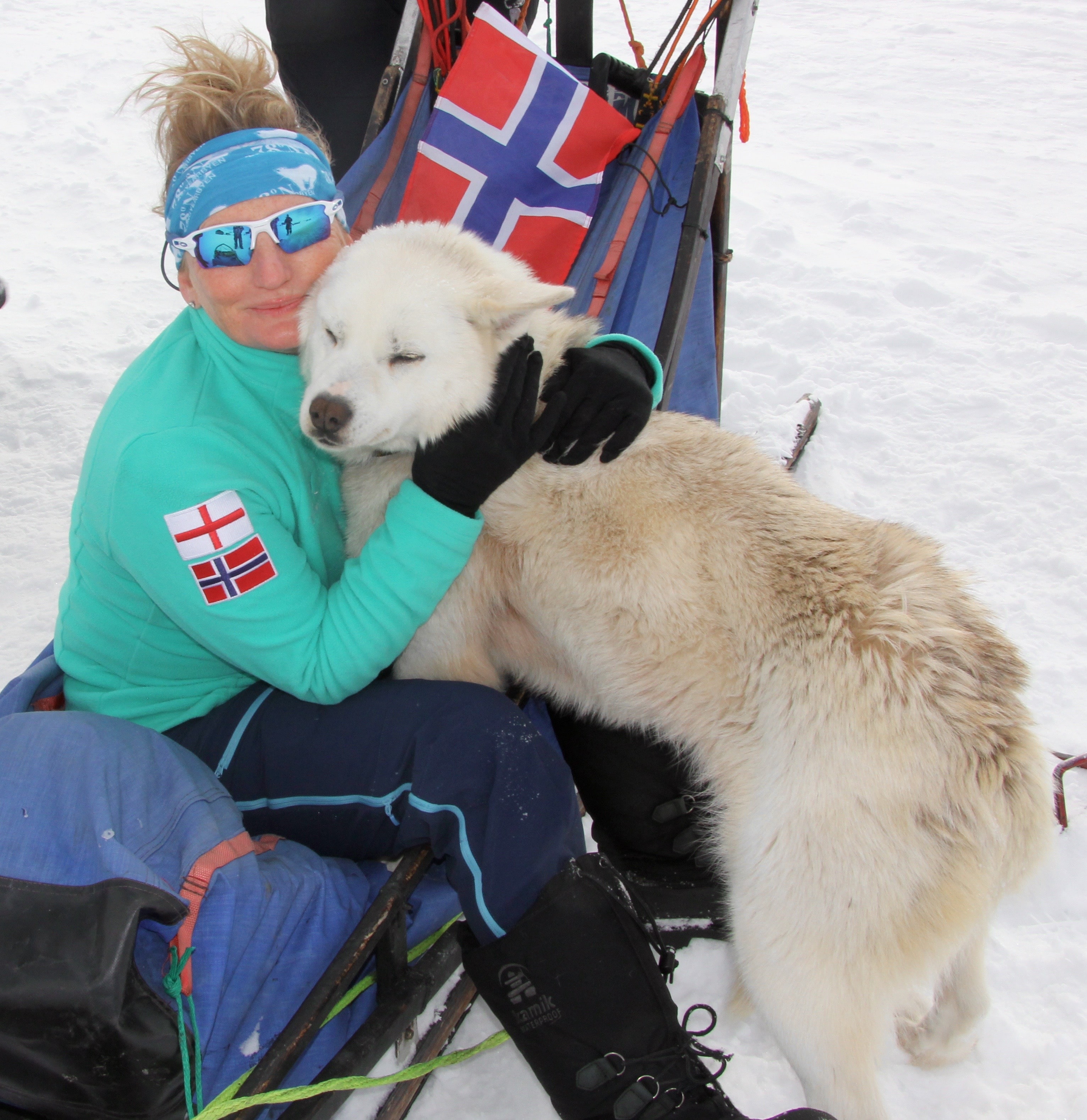
You are doing a women’s trip to Svalbard in April 2021. What will that be like?
I am super excited about returning to Svalbard next April. It will be Mountain High’s 10th expedition to Svalbard. I never tire of this magical place. I have kept the program pretty much the same since the first trip – ice-caving, dogsledding, snowmobile safari, glacier hike and time to hang out with the locals, visit the museum, and take lots of pictures.
“As long as I am breathing I intend to keep setting new goals and live a full and fulfilling life”
What are your ambitions for the future?
While the current travel restrictions are in place I will focus on UAE-based programs, running virtual programs for corporate clients to help support teams through an integrated well-being series. I am starting to get speaking requests in for 2021; for now it’s mainly virtual. As long as I am still breathing I intend to keep setting new goals and live a full and fulfilling life.
I am working on my second book which will focus on the element of water and be more of an “experience” than a regular book. My first book, Moving Mountains: Discover the Mountain in You, was published in 2016. I have used this unexpected slowdown in business to study positive psychology, radical resilience, and the science of well-being. It’s been a time to connect and collaborate with strategic partners, explore new ways of doing things and get super fit so when the skies and borders re-open I am adventure-ready with a tribe of clients who need to re-wild after months of domestication.
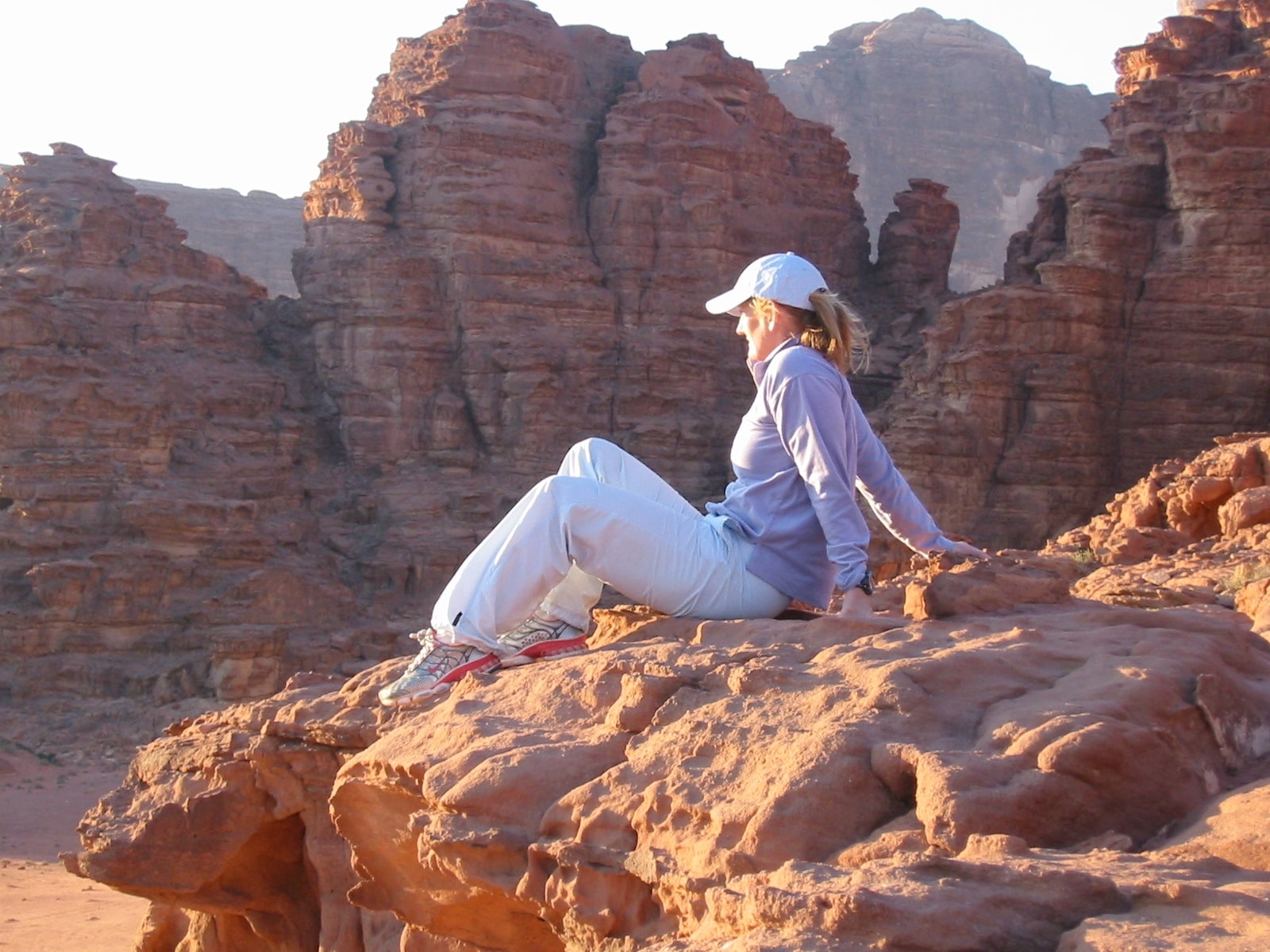
Where are you living?
Abu Dhabi, the Capital of the United Arab Emirates. I have lived and worked here for the last 8 years. Prior to this we lived in Hong Kong for 2 years and Dubai for 15 years. Work brought me to the Middle East back in 1997; since then I have been an expat and sense that I will be an expat for many years to come. I am originally from Sheffield, Yorkshire, England. I am one of 4 children and we are blessed to have good long-life genes; my father passed last year at the age of 92 and my mother is still going strong at 95.
The ideas expressed here are solely the opinions of the author and are not researched or verified by AGEIST LLC, or anyone associated with AGEIST LLC. This material should not be construed as medical advice or recommendation, it is for informational use only. We encourage all readers to discuss with your qualified practitioners the relevance of the application of any of these ideas to your life. The recommendations contained herein are not intended to diagnose, treat, cure or prevent any disease. You should always consult your physician or other qualified health provider before starting any new treatment or stopping any treatment that has been prescribed for you by your physician or other qualified health provider. Please call your doctor or 911 immediately if you think you may have a medical or psychiatric emergency.
AUTHOR

We will never sell or give your email to others. Get special info on Diet, Exercise, Sleep and Longevity.

